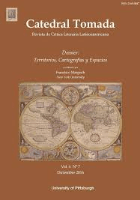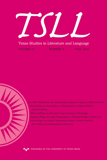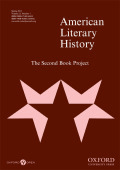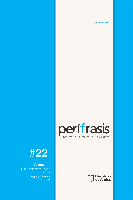
Mitologias Hoy-Revista de Pensamiento Critica y Estudios Literarios Latinoamericanos
Scope & Guideline
Fostering Interdisciplinary Dialogue in Latin American Studies
Introduction
Aims and Scopes
- Interdisciplinary Cultural Critique:
The journal emphasizes an interdisciplinary approach, integrating literary studies with cultural criticism, sociology, and political theory to analyze texts and their broader implications in Latin American society. - Exploration of Mythology:
A core focus is on the reinterpretation of myths—both traditional and contemporary—within Latin American literature, examining how these narratives shape identity and social consciousness. - Gender and Identity Studies:
The journal addresses themes of gender, feminism, and identity, often spotlighting marginalized voices and challenging patriarchal narratives in literature and society. - Decolonial Perspectives:
There is a consistent emphasis on decolonization in literary discourse, exploring how colonial histories and postcolonial realities influence contemporary Latin American literature. - Literary Innovation and Experimentation:
The journal showcases innovative literary forms and styles, encouraging experimental approaches in literature that reflect the complexities of modern Latin American experiences. - Engagement with Socio-Political Issues:
Papers often engage with pressing socio-political issues, including migration, violence, and environmental concerns, highlighting literature’s role in social critique and activism.
Trending and Emerging
- Decolonial Literature:
An increasing number of publications focus on decolonial literature, examining how contemporary writers challenge colonial legacies and reframe narratives to reflect indigenous and marginalized perspectives. - Intersectionality in Gender Studies:
There is a notable trend towards intersectional approaches in gender studies, exploring how various identities—race, class, sexuality—intersect and influence literary representations and experiences. - Environmental Literature and Ecocriticism:
Emerging themes in environmental literature and ecocriticism highlight the relationship between literature and ecological issues, focusing on how narratives address climate change and environmental justice. - Digital Humanities and New Media:
The journal is beginning to embrace themes related to digital humanities and the impact of new media on literary production and consumption, reflecting changes in how literature is created and engaged with. - Transnational and Migrant Narratives:
There is a growing focus on transnational and migrant narratives, reflecting the complexities of identity and belonging in a globalized world, and how these experiences manifest in contemporary literature.
Declining or Waning
- Traditional Historical Narratives:
There has been a noticeable decline in papers focusing solely on traditional historical narratives, as the journal increasingly prioritizes contemporary issues and innovative narratives that challenge historical accounts. - Eurocentric Literary Analysis:
Previous emphasis on Eurocentric literary frameworks is waning, with a growing preference for localized and indigenous perspectives that resonate more with current Latin American contexts. - Static Gender Roles:
Themes surrounding static or traditional gender roles are becoming less frequent, as the discourse shifts toward more dynamic and intersectional analyses of gender identities and experiences. - Canonical Texts:
The focus on canonical texts from the Latin American literary tradition is diminishing, as there is a growing interest in exploring non-canonical, emerging voices and experimental literature. - Conventional Literary Criticism:
The journal is moving away from conventional literary criticism, favoring more innovative, interdisciplinary approaches that incorporate sociology, psychology, and environmental studies.
Similar Journals

Taller de Letras
Fostering Scholarly Excellence in Literary StudiesTaller de Letras is a renowned academic journal published by the Pontificia Universidad Católica de Chile, specifically from the Faculty of Letters. With an ISSN of 0716-0798, this journal holds a significant position in the field of Literature and Literary Theory, enjoying a commendable Q2 quartile ranking as of 2023. It operates under the auspices of a prestigious institution, promoting high-quality scholarly discourse within its scope, which spans a wide array of literary studies. Although the journal does not offer Open Access, its contributions are pivotal for researchers, professionals, and students seeking to enhance their understanding of contemporary literary trends and theories, establishing a critical dialogue within the literary community. With coverage extending through a converged lifespan from 2011 to 2024, Taller de Letras continues to be a valuable resource for those engaged in the vibrant fields of literature and criticism.

Literature Compass
Advancing Understanding through Scholarly InsightLiterature Compass, published by WILEY, is an esteemed journal in the field of Literature and Cultural Studies, reflecting a robust commitment to advancing scholarly discourse since its inception in 2004. With an impressive Q1 ranking in Literature and Literary Theory and a Q2 ranking in Cultural Studies as of 2023, the journal stands out as a critical resource for researchers, professionals, and students alike, offering insights into contemporary literary analysis and cultural critique. While not operating as an open access journal, it provides a wealth of peer-reviewed articles that delve into the complexities of literature and its societal implications. The journal’s unique aim is to bridge diverse literary topics, facilitating a holistic understanding of narrative forms and their cultural contexts. As part of a prestigious academic tradition, Literature Compass is published from the United Kingdom and serves as a vital platform for intellectual exchange in an increasingly interconnected world.

Catedral Tomada-Revista de Critica Literaria Latinoamericana-Journal of Latin American Literary Criticism
Advancing Scholarship in Latin American LiteratureCatedral Tomada - Revista de Crítica Literaria Latinoamericana is a pioneering journal dedicated to the exploration and critique of Latin American literature and its broader cultural implications. Published by the University of Pittsburgh's Library System, this Open Access journal has been instrumental since its launch in 2013 in making scholarly discussions accessible to a wider audience. With an ISSN of 2169-0847, the journal serves as a vital platform for researchers, professionals, and students interested in Literature and Literary Theory, Cultural Studies, and Linguistics and Language. Its esteemed ranking places it in Quartile 1 for Literature and Literary Theory and Quartile 2 for the other categories, underlining its commitment to high-quality academic discourse. Converging insights through a quarterly publication schedule from 2019 to 2024, Catedral Tomada aims to foster a rich dialogue on Latin American literary criticism, encouraging innovative perspectives and diverse voices within the field.

TEXAS STUDIES IN LITERATURE AND LANGUAGE
Navigating the Depths of Texas's Linguistic LandscapeTEXAS STUDIES IN LITERATURE AND LANGUAGE, published by University of Texas Press, is a distinguished scholarly journal dedicated to the exploration of the rich tapestry of literature and language from Texas and its encompassing regions. With its ISSN 0040-4691 and E-ISSN 1534-7303, this journal serves as a vital platform for researchers, educators, and students interested in the intersection of cultural studies, literary analysis, and linguistic inquiry. Despite the absence of Open Access, the journal remains an essential resource for those seeking rigorous academic discourse within the humanities. The journal, established in 1974, has published influential articles that contribute to a deeper understanding of Texas's unique literary heritage, making it a beacon of scholarship in American literature. The impact factor reflects its relevance and engagement in ongoing literary dialogues. We invite scholars and students alike to engage with the rich content provided, ensuring that Texas's literary legacy continues to be studied and celebrated.

AMERICAN LITERARY HISTORY
Illuminating the Tapestry of American LiteratureAMERICAN LITERARY HISTORY, published by Oxford University Press Inc, is a leading peer-reviewed journal dedicated to advancing the understanding of American literature within the broader contexts of cultural studies and history. With an impressive impact factor reflecting its Q1 ranking in Cultural Studies, History, and Literature and Literary Theory, this journal serves as an essential resource for researchers, professionals, and students alike. Covering a wide range of topics, it seeks to illuminate the historical and cultural dynamics that shape literary production in the United States from 1989 to 2024. Although not an open access journal, AMERICAN LITERARY HISTORY remains a pivotal platform for scholarly discourse, encouraging rigorous scholarship and critical engagement with literary texts. The journal's strong Scopus rankings further emphasize its significance, ranked among the top journals in its field, making it an indispensable tool for anyone seeking to explore the rich tapestry of American literary heritage.

Impossibilia-Revista Internacional de Estudios Literarios
Fostering Global Dialogues Through LiteratureImpossibilia-Revista Internacional de Estudios Literarios is a premier open access journal dedicated to the vibrant field of literary studies, published by ASSOC CULTURAL IMPOSSIBILIA since 2011. With its ISSN 2174-2464, this international journal encourages the exploration and analysis of diverse literary theories, texts, and contexts, making it an essential resource for researchers, scholars, and students alike. Hailing from Granada, Spain, Impossibilia not only fosters academic discourse in literature but also promotes intercultural dialogue through its commitment to accessibility and inclusivity. While data such as H-index and Scopus rankings are still to be developed, the journal's focus on enriching the literary landscape ensures its growing impact and relevance within the academic community.

Alea-Estudos Neolatinos
Exploring the Depths of Neolatino StudiesAlea-Estudos Neolatinos is a prominent academic journal dedicated to the exploration and analysis of neolatino studies, published by the Universidade Federal do Rio de Janeiro, Faculdade de Letras. Since its establishment in 2003, this Open Access journal has provided a platform for scholars from around the globe to disseminate their research in both Linguistics and Literature and Literary Theory, recently earning a Q3 ranking in Linguistics and Language and a Q2 ranking in Literature and Literary Theory in 2023. With its broadening scope from 2008 to 2024, Alea plays a crucial role in advancing interdisciplinary dialogues across various dimensions of neolatino cultural studies, appealing to researchers, professionals, and students alike. Its commitment to accessibility and innovative scholarship underscores its significance in the academic community, particularly in the rich landscape of Brazilian and Latin American literature. With the world of linguistic and literary theory constantly evolving, Alea serves as a vital source for contemporary discourse and scholarly advancement.

Perifrasis-Revista de Literatura Teoria y Critica
Illuminating the complexities of narrative and society.Perifrasis-Revista de Literatura Teoria y Critica is a distinguished open-access journal published by UNIV ANDES in Colombia, dedicated to advancing the fields of literature, literary theory, and criticism. With an ISSN of 2145-8987 and an E-ISSN of 2145-9045, this journal has been a significant platform for scholarly discourse since its inception in 2010, embracing an open-access model that enhances accessibility and dissemination of research findings. Strategically positioned in the Q2 category for Literature and Literary Theory, Perifrasis boasts a commendable Scopus ranking, reflecting its commitment to high-quality scholarship. The journal encompasses a wide range of topics within the humanities, including cultural studies and gender studies, and aims to foster critical engagement and innovative thinking among researchers, students, and professionals alike. As the journal continues to evolve through its converged years from 2019 to 2024, it remains a vital resource for those exploring the dynamic intersections of literature, society, and identity.

Estudios de Teoria Literaria-Revista Digital-Artes Letras Humanidades
Innovating Conversations in Humanities StudiesEstudios de Teoria Literaria-Revista Digital-Artes Letras Humanidades is a prominent scholarly journal published by UNIV NAC MAR PLATA in Argentina, dedicated to advancing the fields of Literary Theory, Communication, and Cultural Studies. Established with an Open Access model since 2012, the journal fosters global dissemination of research without financial barriers, encouraging a broader dialogue among scholars, practitioners, and students alike. Notably, it enjoys a presence in Scopus, with various category quartiles indicating its commitment to quality and relevance, particularly with rankings such as Q3 in Literature and Literary Theory. By providing a platform for innovative scholarship, Estudios de Teoria Literaria aims to explore complex theoretical frameworks and cultural discourses, making significant contributions to ongoing debates in the humanities. The journal is published from its base in Mar del Plata, Buenos Aires, and continues to expand its influence in both regional and international academic communities.

Cuadernos Lirico
Fostering Innovative Perspectives in Literary StudiesCuadernos Lirico is a prestigious academic journal dedicated to the exploration of literature and literary theory, published by CUADERNOS LIRICO. With an ISSN of 2263-2158 and E-ISSN 2262-8339, this journal has been committed to open access since 2011, ensuring wide dissemination of its research across the globe. Based in France, the journal serves as a vital platform for scholars and practitioners, promoting innovative discourse within its field. Despite its current position in Q4 of the Literature and Literary Theory category and a Scopus rank of #993/1106, Cuadernos Lirico aims to bolster its impact through the publication of high-quality, peer-reviewed articles that contribute to the understanding and analysis of literary texts and theories. The journal invites contributions that engage with diverse perspectives and methodologies, fostering a rich dialogue among researchers, literary critics, and educators. Join us in advancing the scholarly pursuit of literature by contributing to this dynamic platform.